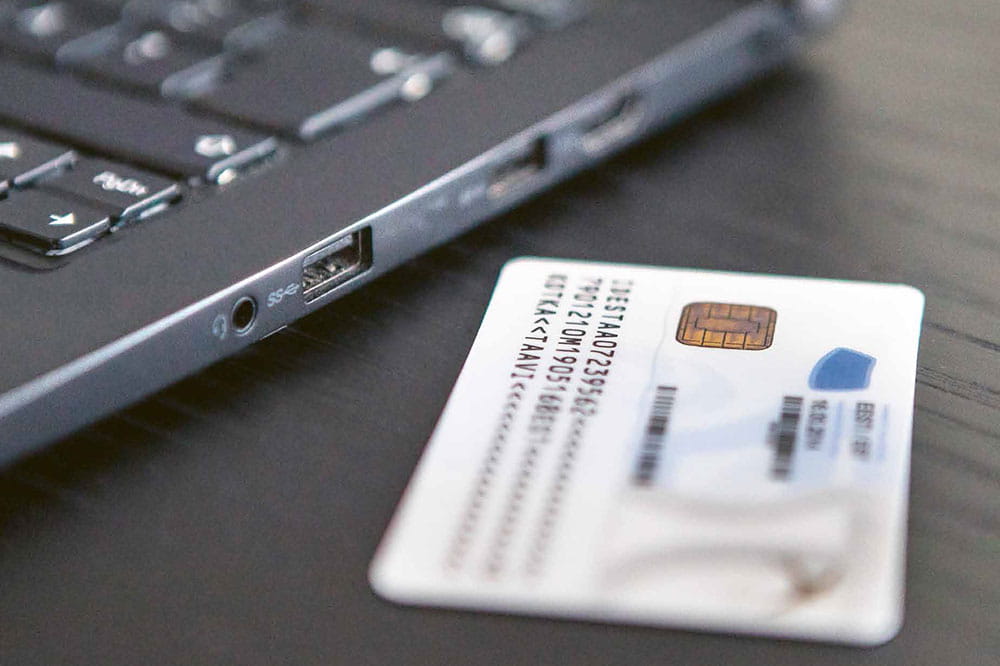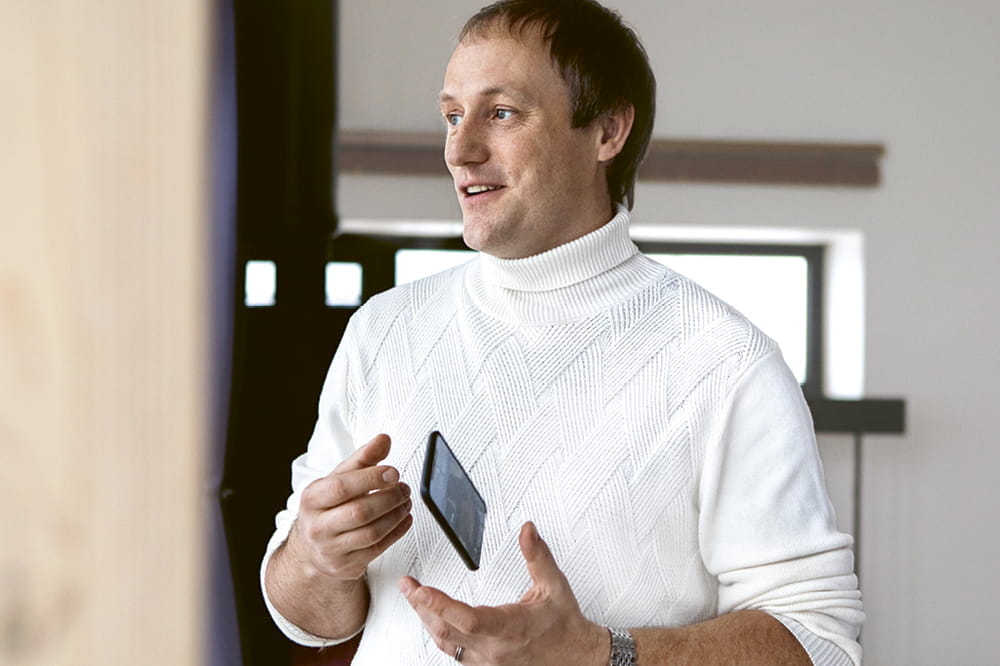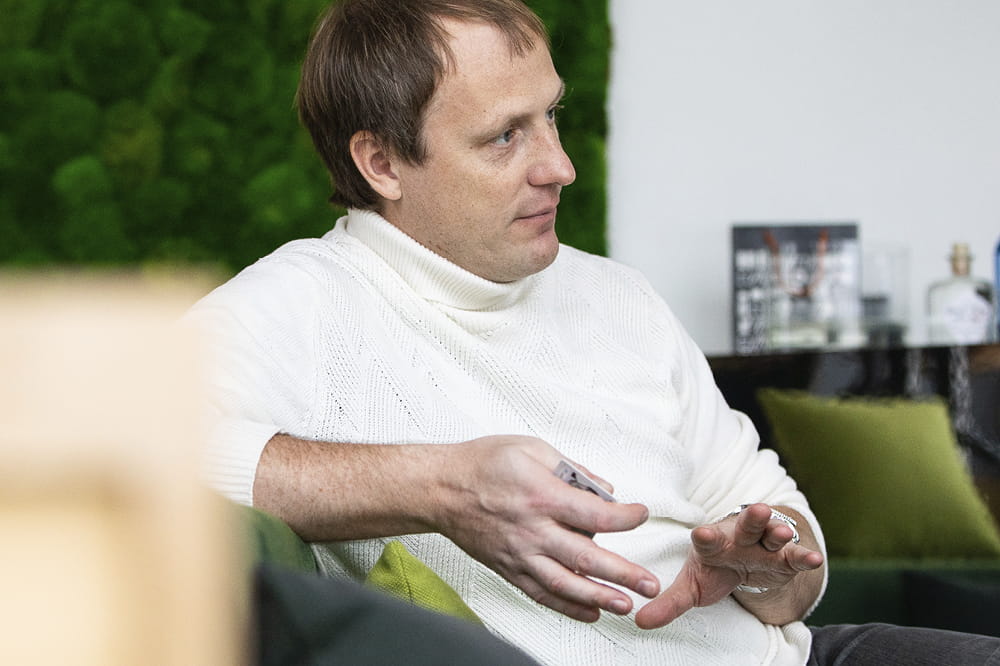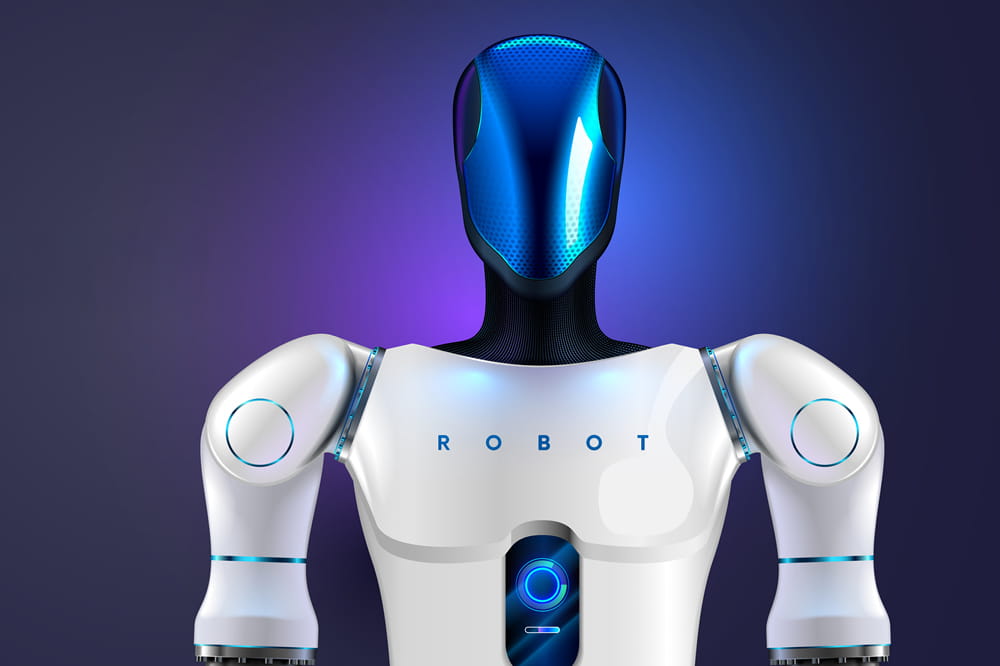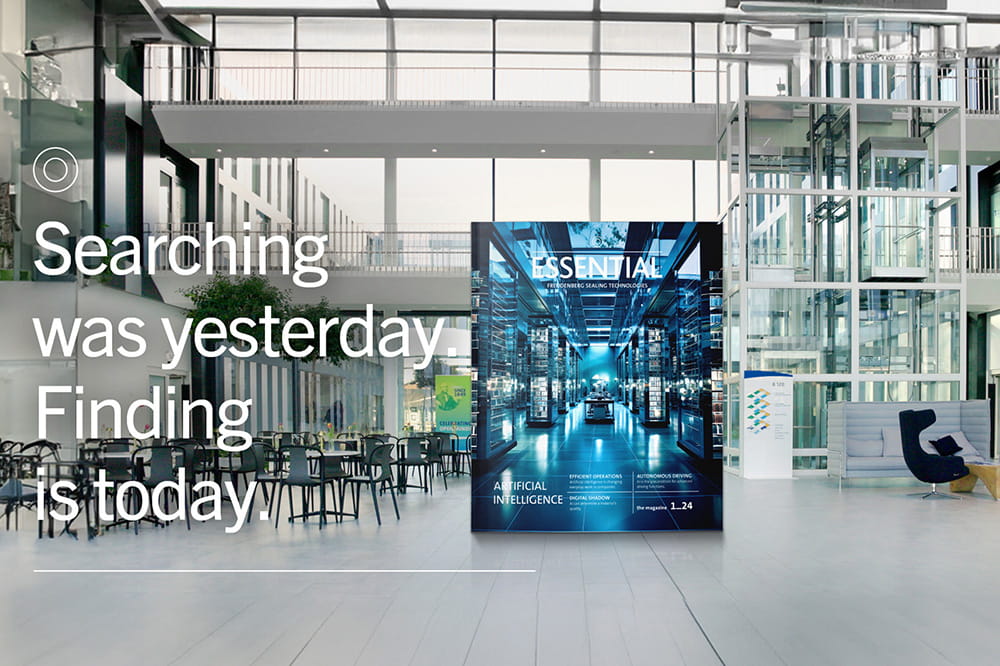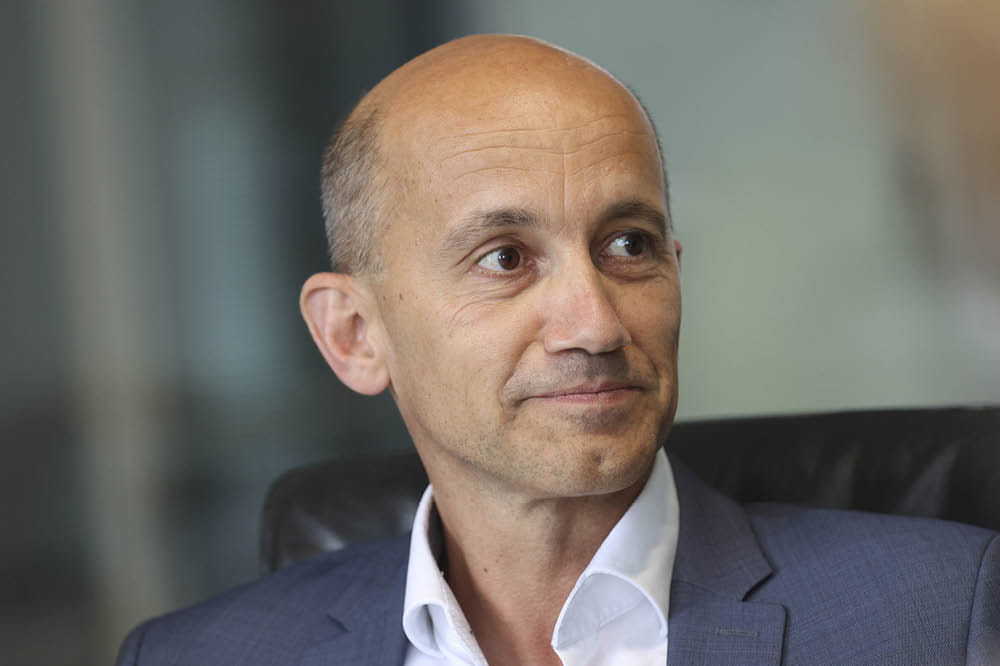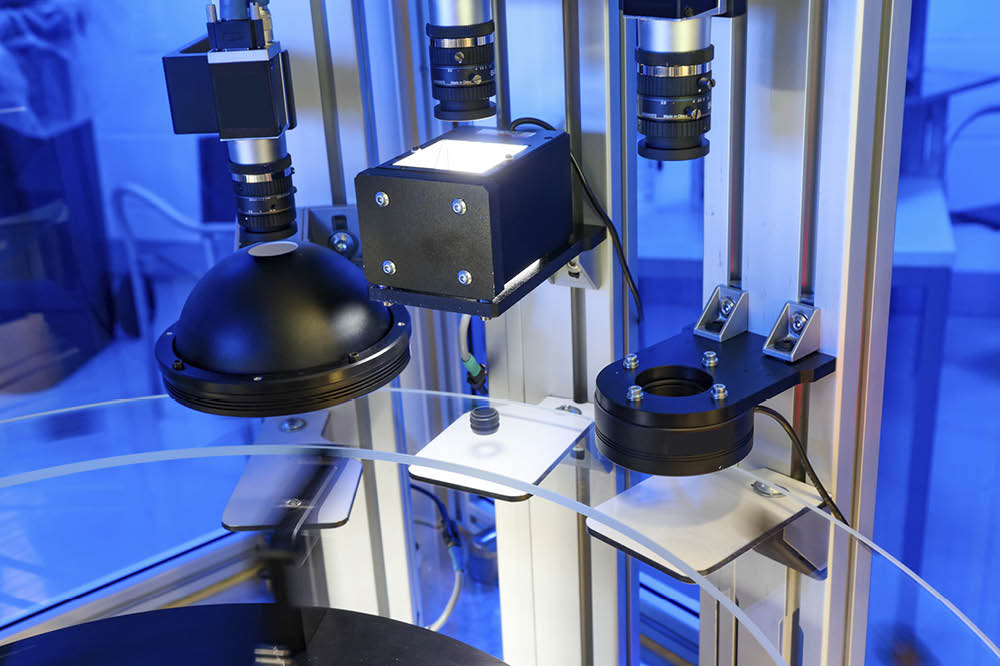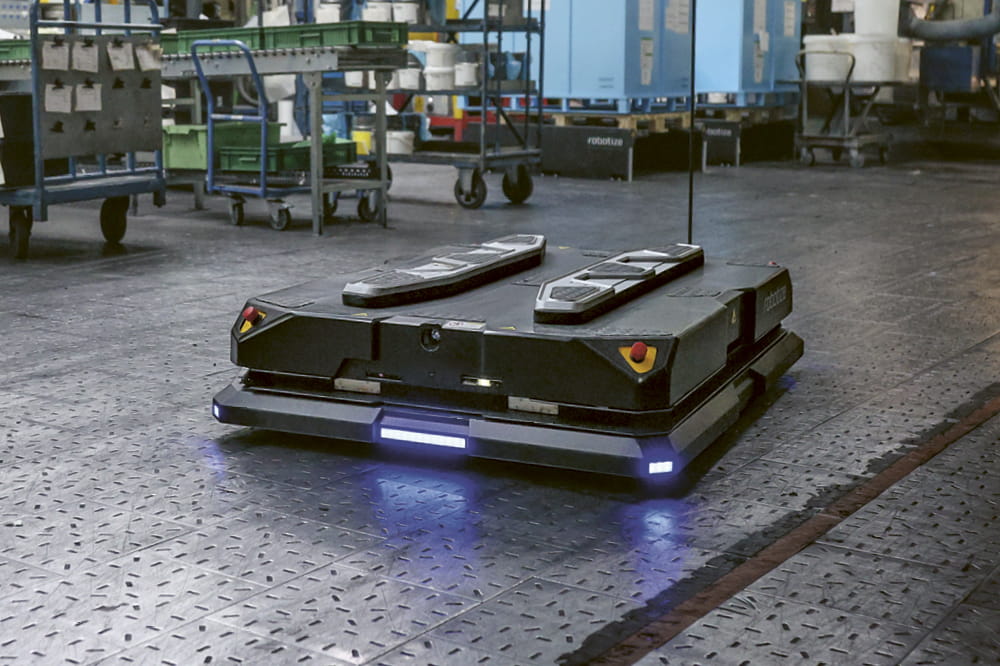Obtain news and background information about sealing technology, get in touch with innovative products – subscribe to the free e-mail newsletter.
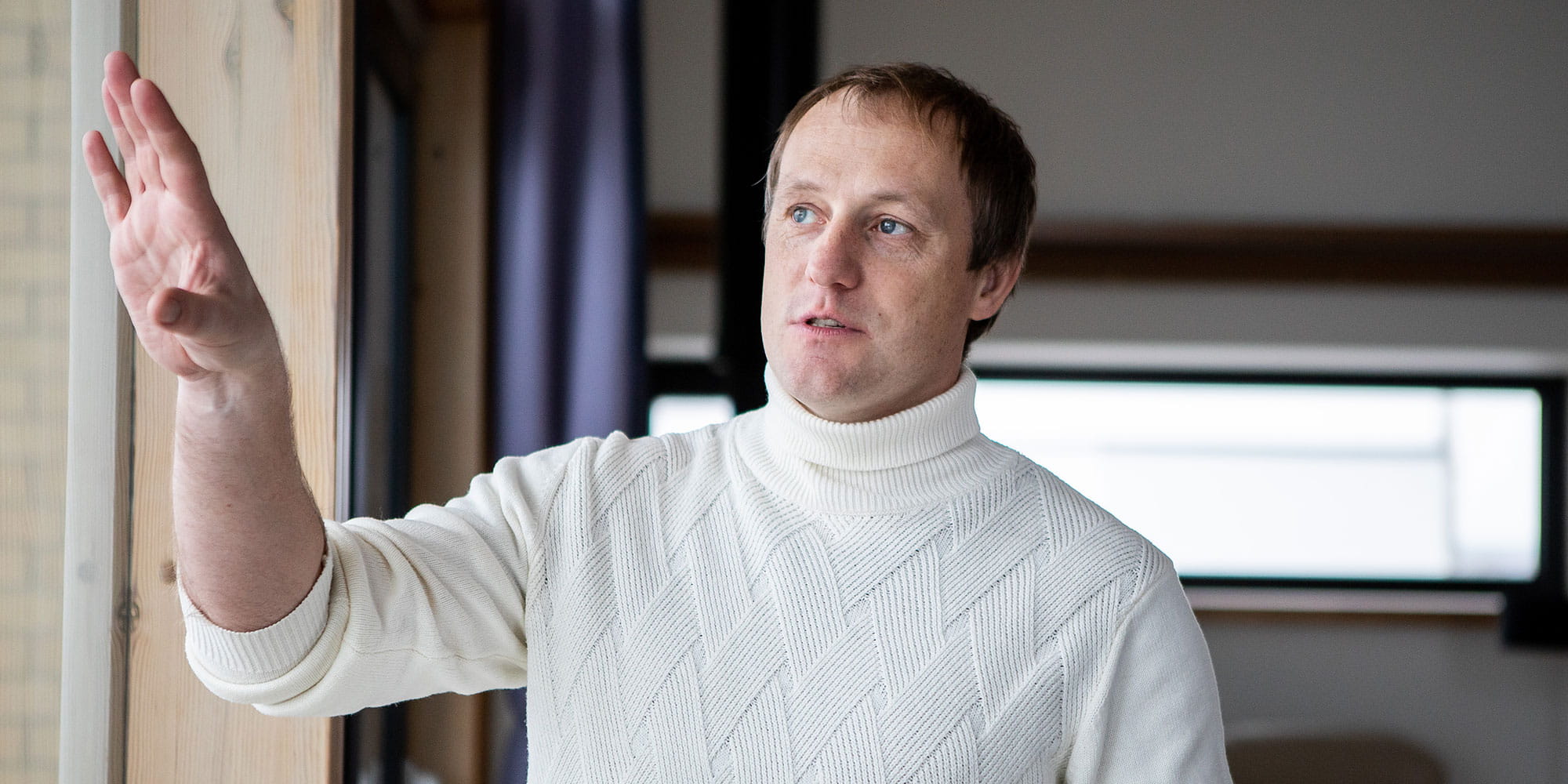
07.05.2019 | Story
“We Can Always Reboot Our Country”
In 1991, barely half of all Estonians had a phone connection. Today, there is hardly a country that is as systematically digitalized as Estonia. Taavi Kotka was the first Chief Information Officer (CIO) for the government of Estonia through 2017. We spoke to him about Estonia’s need to digitalize, its digital society and his conviction that countries like Germany and the U.S. have to follow their example.
Taavi Kotka, congratulations on the birth of your fourth child. You tweeted an image from the hospital that showed a wristband with a barcode on your child’s arm. What was that about?
When a baby is born in Estonia, the government names the baby first and then the parents have two weeks to figure out what the baby’s given name should be. When I say that the government names the baby, I mean that the government gives a unique identifier to the child, a digital name that is also written down on the wristband. Every newborn gets one. All the data that are created and connected with the child, the birth record, the patient record or whatever information now starts to exist will be connected with that digital identity.
So the unique identifier is the decisive trigger?
Exactly. In the digital world, your names have to be unique. It’s like your mobile number and your email address, they are also unique. We have agreed that every Estonian has a unique identifier from his or her very first breath. That’s why I showed the wristband of my baby boy to show the world that this is something essential for our society. The unique identifier was instantly issued by the population registry that is our key registry. All the other registries need to refer to that particular one.
Aren’t there any concerns in your society about this collection of data?
There’s a huge difference between how Germans or people from the UK see privacy and how Nordic societies in Scandinavia and Estonia do. In Germany, you simply don’t know who has had a look at your patient record. You don’t have a clue because you are not able to control your data. In Estonia, we mean that connecting data is not the problem. What counts is having control over our data.
And you have it?
Yes. I can see who has had access to my data. As long as the regulation doesn’t say otherwise, I can cover my data so that no one else has access to it. And I can always ask the Ministry for the Environment, for example, what kind of data it created about me. So, for us, the new data protection regulation in the EU has been our life anyway.
So what characterizes your digital society in Estonia?
When we talk about being a digital society, we don’t talk about going from paper to computer. What we mean is a seamless society, where things just happen.
Can you please give us an example?
When a child is born, the mother gets child support money. Whenever the nurse puts the baby into the system, the hospital system triggers an event in the population registry. The unique identifier is issued for the child, and the population registry triggers an event in the Ministry of Social Affairs that the mother is supposed to get support money. That’s very convenient since most people want to receive the support money anyway. So why should they have to apply for it? To calculate the child support money, the responsible department needs to know the salary and taxes of the mother. Tax and customs deliver that information automatically. It’s about issuing requests from machine to machine, no human is involved. The first and foremost step is that everyone gets his unique identifier. Otherwise, our system wouldn’t work.
First of all, our digital approach is for society.
Taavi Kotka, former CIO of the Estonian government
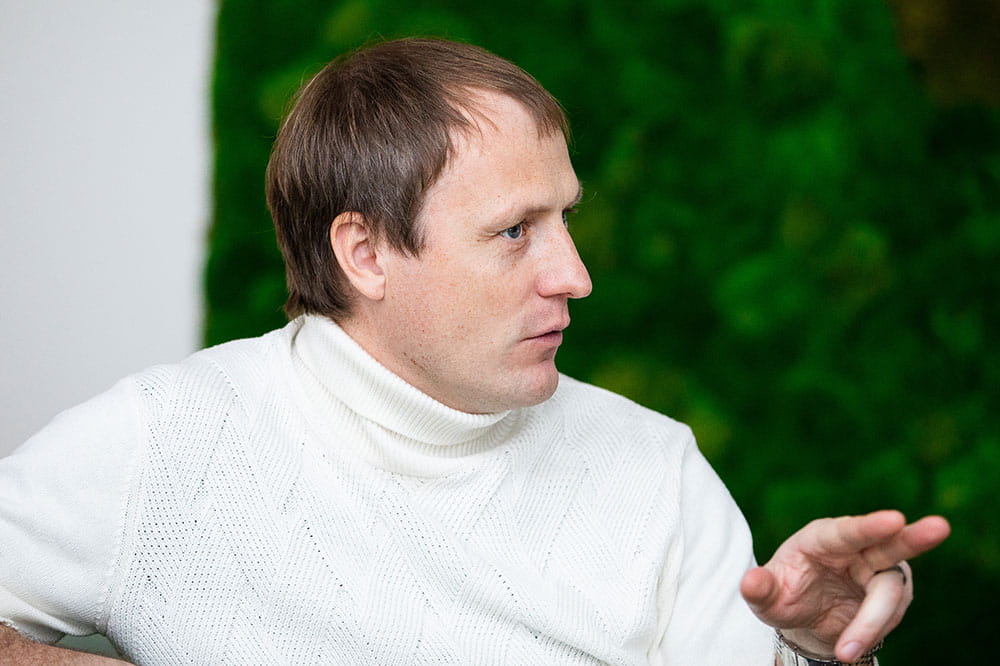
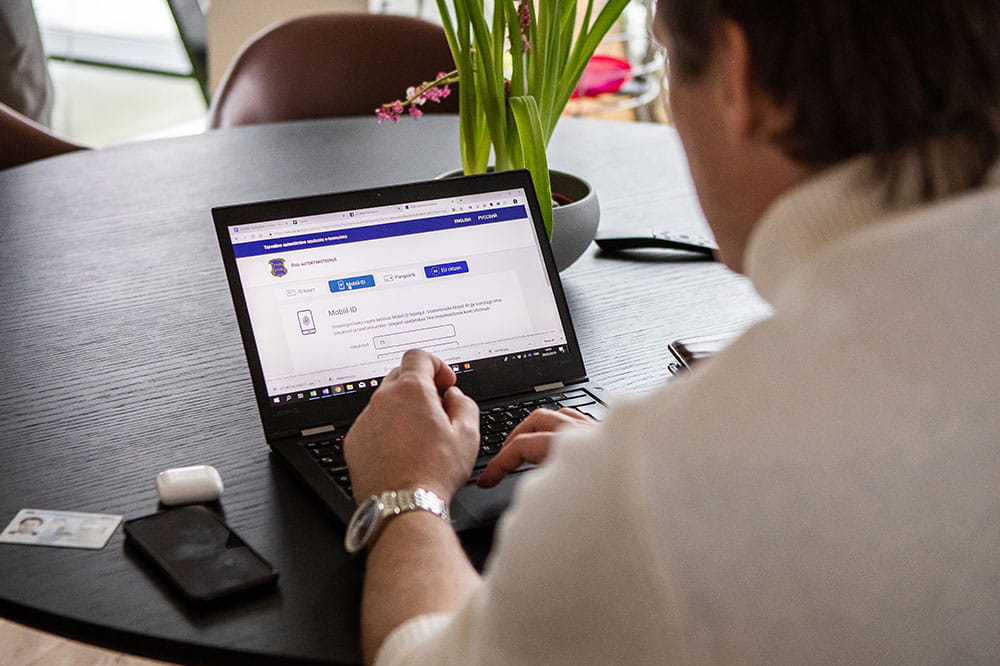
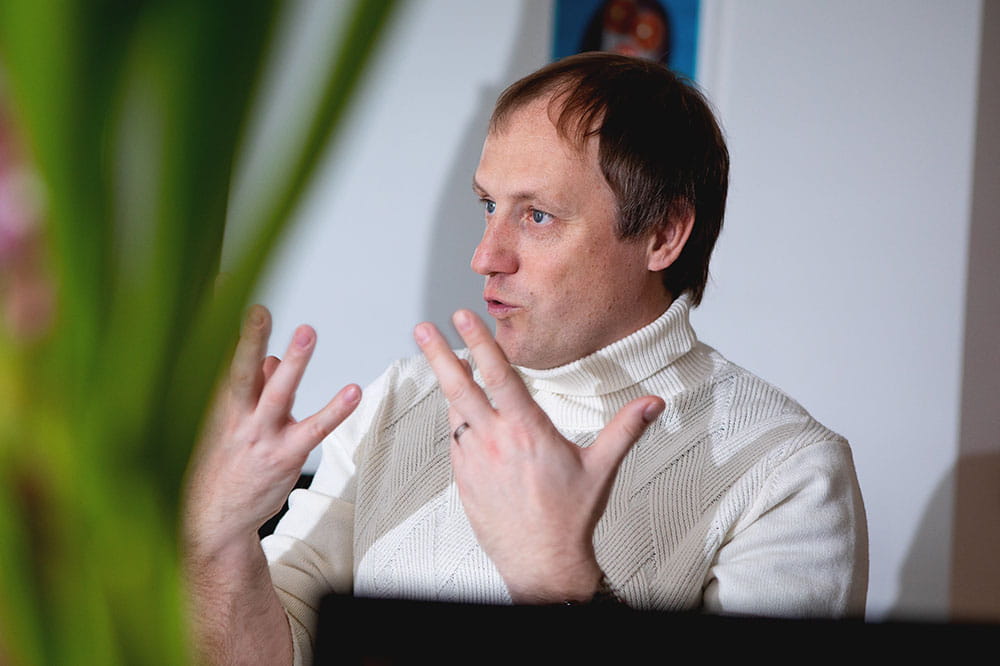
So how do your administration and economy benefit from the digital society?
First of all, it’s for society. The people have control over their data. If I want to remove or cover my data, I can do it in Estonia. Another thing when it comes to digital society is the time saved. In most countries of the world, if you need to sign a contract, you print it out, sign it, pay a courier service to send it to the other party, they sign it, pay the courier service as well to send it back to me. So, both of us spend money and it takes at least a day. How do we do it? We right click, pin it with email to you, you open it, add your pin and send it back. Two minutes. That’s it. And, last but not least, we can connect and combine everything. From health care data to financial data to social data, data in agriculture, and so on.
So there’s great trust in your system?
When people are used to using certain things or they understand how the system works, the trust gets bigger. Of course, the system can also be abused. A doctor can be evil. But then, we know it’s that doctor, since I can easily track in our system who has accessed my data. He gets fired instantly if he queries information without reason. If he passes data to a third person, he goes to jail.
In 2017, the Estonian Parliament chose to host a backup of its most important data at a “data embassy” in Luxembourg. What was behind this decision?
When your society is fully digitalized, there’s no paper anymore. I don’t have my child’s birth record on paper. It’s in the registry. Digital continuity becomes important for our daily life. So, whenever something bad happens, a natural disaster or a cyber war, we have a backup now. We can always reboot our country from the cloud and continue to run certain services from outside Estonia. If we get hacked, we switch the server off here and turn it on in Luxembourg. It’s like with your family photos. You need backups if you want to keep them and we decided to host them outside of our country.
In October 2018, the Estonian Prime Minister made Bill Gates a virtual citizen of Estonia. What benefits does the founder of Microsoft now enjoy?
When we invented the e-residency a few years ago, it was pioneering stuff. It’s like Spotify versus the CD. You don’t buy CDs anymore but use streaming platforms like Spotify because they are more convenient. The question was: shouldn’t government services also be seen the same way as Spotify?
So you opened your government services to people from abroad?
Yes. If you’re a freelancer and run a company elsewhere in the European Union, that often means high costs, huge bureaucracy, it takes lots of time and hassle. If you run a company in Estonia – the same EU, the same European bank accounts, the same speed with bank transactions, and the same MasterCard system – it just costs you € 75 ($ 85) per month and you don’t have to do any reporting, any accounting and your taxes are paid in your native country, so you don’t cheat your government. What we want to prove with e-residency is that, in the future, people will start seeing health care services, education and government services as services. And they will grab the ones that are more efficient. With our e-residency, you are like an Estonian. You use the same digital tools and services as me.
We will lose heavily to Asia, so we need to adopt a new mind set.
So you aim to attract new business?
The customers of your country are the people and the companies who are connected with your economy. The e-residency program is meant to attract and connect more people all over the world with our economy because, when they operate a company here, they need a bank account. And they might end up choosing a bank account from here. And when our banks have more customers, they will pay more taxes.
Sounds like a locational advantage!
Today, countries only compete to get the best people for their universities or companies. The future will be: how can I connect more customers virtually? Like Spotify versus the CD store. That will be the future competition, and we just show how it works.
E-residency is an example of how your country is breaking out of old, established patterns. Is it a feature of the digitalized world to reassess challenges because so much more is possible today? And what does this mean for entrepreneurs?
Every decade we have something new that changes the world, right? It’s a question of adoption. U.S. companies adopted the benefits of the Internet so much faster. We don’t have our European Google, Facebook or Amazon. Why? Because we were just late. The same thing will happen again if we now miss out on digitalization and the digital beneficial society. The good news is that Europeans won’t lose to the U.S. They are as bad as Europe. But we will lose heavily to Asia, so we need to adopt a new mind set, a new way of thinking.
In other words, the western societies need to wake up.
China and the Nordic countries combine data because they believe that it’s needed and it provides better and faster services and allows better decision-making. And there are countries like Germany, the U.S. and the UK where the governments lag behind. It’s not only about convenient services or service automation. It’s also important what kind of questions you can answer for a better future. Am I able to connect certain elements, certain registries, to draw the right conclusions?
Taavi Kotka
(born in 1979) started his career as a programmer before rising to be the CEO of a large software development company (now Nortal). In 2013, he became Estonia’s first ever Chief Information Officer (CIO). He oversaw the country’s development as an advanced digital nation until 2017. During his time in office, the e-residency program and data embassies were introduced. Kotka was named European CIO of the Year in 2014. He was also special advisor to the European Commission Vice President Andrus Ansip on the European Digital Single Market. He has now returned to the private sector again, with his fellow engineers at ProudEngineers.com.
And Asia is leading the way?
My worries are that if China would say to the next generations in Europe you can open up your businesses in the Chinese market, you have full access to Alipay and other financial tools, you have a 1.3 billion market. It’s all yours and please open your company here. Then it might end up like the CD and Spotify. You used to buy the CDs from the local store. Now, the store is no longer there, it’s bankrupt because you are giving your money to Spotify. Or what if the Chinese health care system is able to give 20 more years of meaningfully lived life to every person in China? Maybe elderly Europeans will start to think they should use the Chinese health care system and give their data, samples and genomes to them. That might have huge implications for our health systems in Europe. Everything becomes a service in the future and digitalization is the door opener.
You once said that the psychological strain was not great enough for large countries like the UK to systematically embrace digitalization? Why not?
The problem is uncertainty and fear. It’s easy to say, “Oh, you know there’s cybercrime.” And, “Oh, privacy concerns, data protection concerns.” Yes, they’re right. But you can be digital and have your privacy protected. We just show that Estonia is more protected than the UK even though we’re more digitalized. I think the real fear is that the people who influence the thinking of society, especially bureaucrats, are just afraid of losing their jobs. That is actually the main reason.
Thanks a lot for this very insightful conversation.
More news on the subject Robotics

Join Us!
Experience Freudenberg Sealing Technologies, its products and service offerings in text and videos, network with colleagues and stakeholders, and make valuable business contacts.
Connect on LinkedIn! open_in_new
